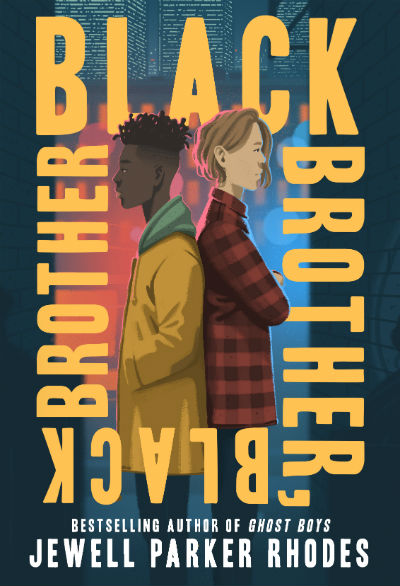Book Review: Black Brother, Black Brother
Reviewed by:
Shafika BurkeInvisibility is all Donte wishes for after moving from New York to Massachusetts. The move places him in a war against people blinded by racism and colorism. How can he win such a battle especially when everything in his new town is binary? Fortunately for Donte, he finds the answer within himself!
Born of a white father and a black mother, Donte is extremely darker than his light-skinned brother Trey, and faces substantial discrimination at Middlefield Prep. His schoolmates label him “black brother” and even with Trey’s support he is treated like an outcast. Being one of the few black boys at his new school, Donte is framed and arrested for “throwing a pencil with intent to harm.” His society is constructed by whites for whites so those belonging to this race are considered lawful and civilized. Blackness, on the other hand, is viewed as a stain and is linked to criminality. This causes Donte to be seen as a “thug” who is responsible for any disruption that arises at Middlefield. He is left feeling defeated and confused as he highlights, “the uniform is supposed to make us all the same.” Uniforms at Middlefield Prep. do not guarantee uniformity and compassion, whiteness does, and this is something that Donte lacks on the outside.
In a quest to find a place where he belongs Donte begins training for a fencing competition in hopes of beating the biggest bully at Middlefield. He chooses this sport because it is a test of skill and it pays no regard to physical appearance. Fencers must salute each other, always shake hands and show respect. If only Donte could apply these requirements to his school and his community by extension. The sport provides Donte with an opportunity to fight back using a constructive method as he redefines what it means to be a black boy in Massachusetts. He does not fight prejudice with prejudice, instead he proves to his oppressors that it is discipline and not skin color that generates advancement.
Along his fencing journey Donte’s coach informs him that he achieved invisibility when he was younger, and this caused him to quit fencing. In the seventies amid civil rights activism coach faced continuous bullying but “wasn’t confident enough to ignore a jerk.” He explains that whites dominated society so as a black man he saw no sense in fighting back. He however encourages Donte not to make the same decisions and to “stay confident, visible.” As the story unravels Donte’s attitude changes; he replaces the statement “I wish I were invisible,” with ones like “I see myself,” “I’m good,” and “I believe in me.” This inner power was all Donte needed from the beginning to rise above the marginalization present at Middlefield Prep.
Jewell Parker Rhodes presents a strong and relevant story in her work Black Brother Black Brother. The story comprised of simple sentences and short captivating chapters makes it suitable for a range of ages. It is a strong critique and account of institutionalized racism and documents a young black boy’s journey to prove himself. Donte’s story in Black Brother Black Brother is relatable to many black children today who experience similar injustices. Young black boys are still being sent to prison without impartial trials and a fair chance at an education; it’s as though the system prefers to see them behind bars than behind desks.
In the empowering words of Donte, “black is not invisible” and it does not need to be because it reflects a strong lineage. Jewell Parker Rhodes’ Black Brother Black Brother will be an asset to any personal library.


